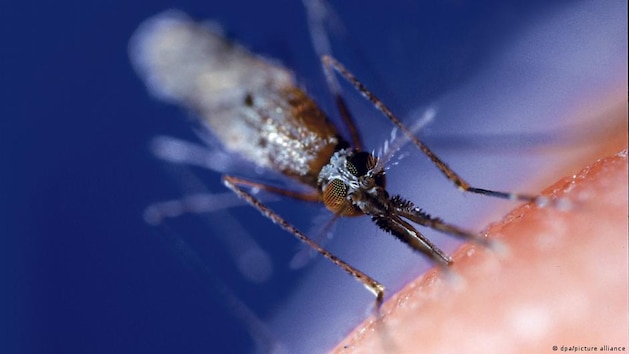From her office in the Berlin Charité, Welmoed van Loon is following a dangerous trend. The researcher from the Institute for Tropical Medicine is working on the notorious malaria pathogen Plasmodium falciparum. It is transmitted to humans by mosquitoes and triggers malaria in them.
For several years, van Loon and her colleagues have been observing mutated pathogens that are quite a challenge. “Parasites with mutations that make them resistant to artemisinin – the most important active ingredient in drug therapies against malaria – are circulating in East Africa in particular,” van Loon told DW. What particularly worries the researchers is that they are not only finding more and more mutants, but also in more and more places.
The World Health Organization (WHO) is also alarmed. “We currently have no other options to treat malaria in Africa. If artemisinin resistance develops, we will see more severe courses and, of course, more deaths,” malaria expert Dorothy Achu told DW.
Fortunately, this is still only a bleak scenario. At the moment, combination therapies are being used in Africa that contain another active ingredient in addition to artemisinin.
But if resistance to artemisinin spreads and the parasites also become immune to other active substances, it could become really dangerous: researchers at Imperial College in London expect 16 million additional cases and 80,000 more deaths in Africa per year.
Such figures bring back dark memories. In the 1970s and 80s, more and more pathogens in Africa became resistant to the chloroquine preparations that were common at the time.
For a long time, they were considered the most important weapon in the fight against malaria. Doctors prescribed them as medicine and for prevention. When the pathogens got used to chloroquine, the consequences were fatal: Worldwide, deaths rose to over a million a year.
It doesn’t have to go that far this time. Experts say the trend towards more artemisinin resistance can be stopped. But a lot would have to happen for that to happen. While mutations are normal in nature, there are factors that favor them. “Mutations arise from the way medicines are used in the population. For example, when people take medication on mere suspicion, without a proper diagnosis. Or through misuse – people stop treatment prematurely or take doses that are not appropriate for their age or weight,” says WHO expert Achu.
In its action plan from November last year, the World Health Organization therefore calls, among other things, for the expansion of testing options for malaria. This is to prevent people from taking drugs on suspicion. Governments should also take action against counterfeit or poor-quality medicines and ensure that only recommended Kom.
At the same time, prevention is to be expanded so that people do not become infected in the first place. “We need vector controls [control of the Anopheles mosquito] and the distribution of bed nets in hotspots, we have to vary existing drug therapies and think about new combination therapies. For example, we may need three drug therapies instead of two. And we need an effective vaccine that has not existed before,” says Charité expert van Loon.
And, even if it sounds boring: scientists and the WHO agree that surveillance needs to improve. So far there have only been individual research projects in selected countries. But no one is consistently researching how resistance is spreading across Africa.
New drugs would be another solution. Research is ongoing – both for new artemisinin therapies and for other drugs. However, WHO expert Achu warns against too much optimism: “It will take a few years and in some cases up to a decade before they can be included in the recommendations of the World Health Organization. And until then, we must guard what we have with the utmost care.”
Author: Daniel Pelz
In order to reduce expensive heating costs, more and more consumers are saving energy. But even with perfectly adjusted heating and optimal insulation, heating errors can ruin this goal. The Central Association for Sanitary, Heating and Air Conditioning shows the most expensive heating errors and how they can be avoided.
Germany is making great strides towards the level of a third world country. At the same time, the state is taking more of its citizens’ income than ever before. Shouldn’t you at least ask for an explanation?
The original of this article “When the sharpest sword against malaria becomes blunt” comes from Deutsche Welle.








